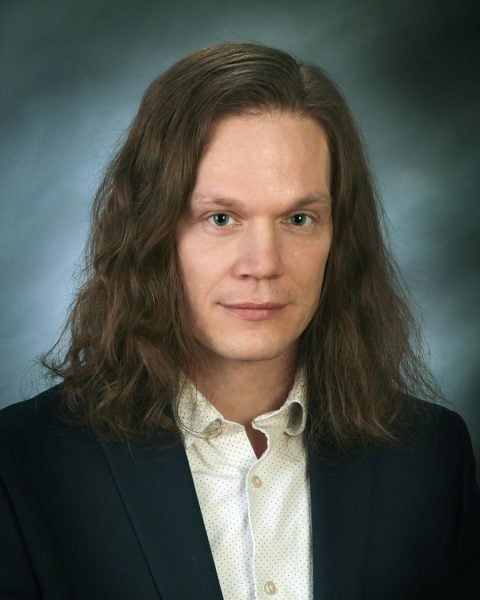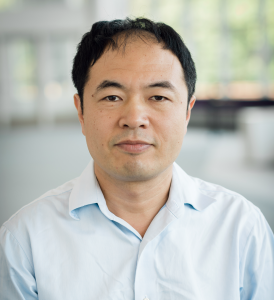
The U.S. Department of Defense, Office of Naval Research, has awarded Michigan Tech faculty researchers a $249,000 grant that supports the creation of an ROTC undergraduate science and engineering research program at Michigan Tech. The primary goal of the program is to supply prepared cadets to all military branches to serve as officers in Cyber commands.
The principal investigator (PI) of the project is Andrew Barnard, Mechanical Engineering-Engineering Mechanics. Co-PIs are Timothy Havens, College of Computing; Laura Brown , Computer Science, and Yu Cai, Applied Computing. The title of the project is, “Defending the Nation’s Digital Frontier: Cybersecurity Training for Tomorrow’s Officers.”
The curriculum will be developed over the summer, and instruction associated with the award will begin in the fall 2020 semester. Cadets interested in joining the new program are urged to contact Andrew Barnard.
Initially, the program will focus on topics in cybersecurity, machine learning and artificial intelligence, data science, and remote sensing systems, all critical to the The Naval Science and Technology (S&T) Strategic Plan and the Navy’s Force of the Future, and with equal relevance in all branches of the armed forces.
The plan of work focuses on on engaging ROTC students in current and on-going Cyber research, and supports recruitment of young ROTC engineers and scientists to serve in Navy cybersecurity and cyber-systems commands. The program will compel cadets to seek positions within Cyber commands upon graduation, or pursue graduate research in Cyber fields.
“Our approach develops paid, research-based instruction for ROTC students through the existing Michigan Tech Strategic Education Naval Systems Experiences (SENSE) program,” said principal investigator Andrew Barnard, “ROTC students will receive one academic year of instruction in four Cyber domains: cybersecurity, machine learning and artificial intelligence (ML/AI), data science, and remote sensing systems.”
Barnard says the cohort-based program will enrich student learning through deep shared research experiences. He says the program will be designed with flexibility and agility in mind to quickly adapt to new and emerging Navy science and technology needs in the Cyber domain.
Placement of officers in Cyber commands is of critical long-term importance to the Navy (and other DoD branches) in maintaining technological superiority, says the award abstract, noting that technological superiority directly influences the capability and safety of the warfighter.
Also closely involved in the project are Michigan Tech Air Force and Army ROTC officers Lt. Col. John O’Kane and LTC Christian Thompson, respectively.
“Unfortunately, many ROTC cadets are either unaware of Cyber related careers, or are unprepared for problems facing Cyber officers,” said Lt. Col. O’Kane. “This proposal aims to provide a steady flow of highly motivated and trained uniformed officers to the armed-services, capable of supporting the warfighter on day-one.”
Andrew Barnard is director of Michigan Tech’s Great Lakes Research Center, an associate professor of Mechanical Engineering-Engineering Mechanics, and faculty advisor to the SENSE Enterprise.
Tim Havens is director of the Institute of Computing and Cybersystems, associate dean for research, College of Computing, and the William and Gloria Jackson Associate Professor of Computer Systems.
Laura Brown is an associate professor, Computer Science, director of the Data Science graduate program, and a member of the ICC’s Center for Data Sciences.
Yu Cai is a professor of Applied Computing, an affiliated professor of Computational Science and Engineering, a member of the ICC’s Center for Cybersecurity, and faculty advisor for the Red Team, which competes in the National Cyber League (NCL).
The Great Lakes Research Center (GLRC) provides state-of-the-art laboratories to support research on a broad array of topics. Faculty members from many departments across Michigan Technological University’s campus collaborate on interdisciplinary research, ranging from air–water interactions to biogeochemistry to food web relationships.
The Army and Air Force have active ROTC programs on Michigan Tech’s campus.
The Office of Naval Research (ONR) coordinates, executes, and promotes the science and technology programs of the United States Navy and Marine Corps.










